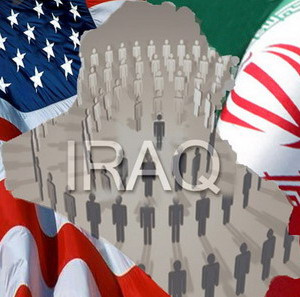Iran-US Talks to Benefit Both Sides
Iranian Diplomacy has sought the views of Dr. Sirous Borna Baldaji, an expert in Iraq and Middle East affairs

In the wake of renewed efforts by Iraqi officials to hold a fourth round of talks between Tehran and Washington on the situation in their country, Iranian Diplomacy has sought the views of Dr. Sirous Borna Baldaji, an expert in Iraq and Middle East affairs.
Iraqi President Jalal Talebani announced Wednesday that Iran is ready to hold talks with the United States on all issues. He said the Iranian president has informed the Baghdad government of Tehran’s readiness to hold negotiations with Washington.
With regard to renewed efforts by Iraqi officials to hold a fourth round of talks between Tehran and Washington on the situation in their country, Iranian Diplomacy has sought the views of Dr. Sirous Borna Baldaji, an expert in Iraq and Middle East affairs.
Q: Why is it important to hold a fourth round of talks between Iran and the US on Iraq?
A: The three countries had already agreed to hold the fourth round of talks about the situation in Iraq. At the same time the most important problem of the Iraqi leaders and statesmen in the process of nation-state building of modern Iraq is the conflict of interests between Iran and the US in Iraq. For the same reason, the Iraqi statesmen are trying to take steps towards normalization of Tehran-Washington relations while asking for some concessions from both sides. Because if this happens the cost Baghdad should pay in the process of nation-state building would reduce in proportion to the improvement in Iran-US ties which could leave a positive impact on the trend of political developments in Iraq. Therefore, we must seek the main reason and motive behind preparations to hold the fourth round of talks in the goals of Iraqi leaders, particularly Foreign Minister Hoshyar Zebari who is a seasoned and skilled diplomat.
Q: What would be the advantages of the new round of talks for the Americans?
A: The US has been trying over the past year to reduce the influence of Iran inside Iraq and in its own opinion ease the extent of violence in the country to lessen Washington’s material and human losses. On the other hand, the three way talks on Iraq could prepare the way for bilateral negotiations between Tehran and Washington. The biggest advantage for the Americans, particularly the Republicans in view of the upcoming presidential elections and internal developments in US would be to pretend that things are moving forward in Iraq, violence has been reduced, and the nation-state building is advancing step by step. This could be a winning card for the Republicans. That is why they are trying to get a favorable response from Iran through negotiations so that this process would be faster and less costly.
Q: How serious do you think Iran is in these negotiations?
A: The truth is that both the US and Iran know that the wall of distrust between the two countries would not collapse so easily. That is why Iranian and American peoples believe they could not expect normalization of relations between the two countries anytime soon. The Americans have been trying to sit at the negotiation table with Iran and discuss such issues as the Arab-Israeli peace process and as they claim Iran’s support for terrorism, its intervention in Iraq, the situation of human rights in Iran, etc. In the meantime, Iran too held the previous three rounds of negotiations by sticking to its own literature such as accusing US of spreading violence in the Middle East on the pretext of democracy as well as intervening in the internal affairs of other countries. Tehran considers Washington to be the main party responsible for the current crisis in Iraq and the region. As we see, the dominant literature in the former rounds of negotiations has been exchange of accusations and there was no climate for constructive talks. But all in all these negotiations have served the interests of both sides.
Meanwhile, there are certain issues Iran is faced with inside Iraq, including the need for expulsion of the Munafeqin (terrorist Mujahedin Khalq Organization) from Iraq which could be used as a winning card by Iran. Another concession Iran could get in the process of the negotiations is some kind of understanding and agreement with the US which could lead to easing the international pressure on Tehran, particularly regarding the nuclear issue. These two issues seem to be among the priorities in the fourth round of Tehran-Washington talks.
Q: How could continued talks between Tehran and Washington affect the security agreement between Iraq and US?
A: In the course of the negotiations, the Americans will naturally try to persuade Iran to reduce its pressures on Iraqi groups, parties, civil institutions and people to form a resistance movement against finalization of the security agreement between Baghdad and Washington. But considering that finalization of the security agreement between Iraq and US seems to be moving forward I think this round of talks would help the Americans to accomplish some of their goals, namely to justify their position for the Iranian officials. The Iran-US talks on Iraq are unlikely to make an important change in the contents of the security agreement. Of course, any change should eventually take place upon the agreement of the Iraqi and American sides.

